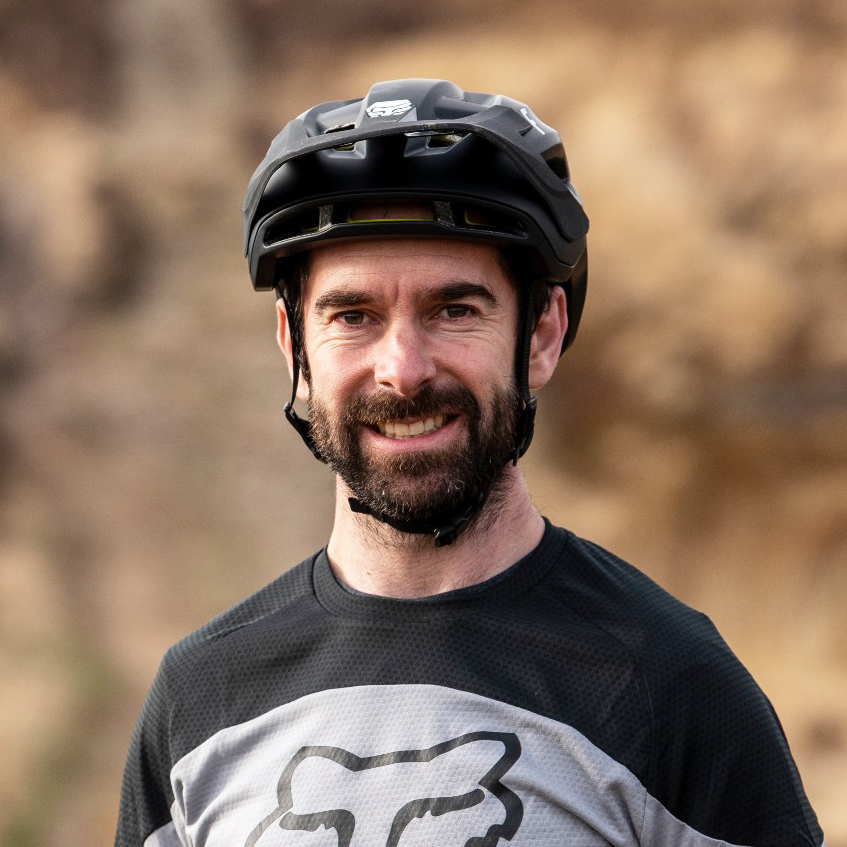When we say that this production version of the new ARC trail hardtail is more affordable, it is. Sort of. At least when compared to the massive £8,999 price tag of the limited-edition ARC that was recently announced to celebrate Yeti’s 35-year anniversary.
And while the anniversary edition of the bike is limited to just 100 units, there are no such availability issues with the standard ARC.
In fact, there are four different models to choose from in the UK and Europe, with prices ranging from £3,799 up to £5,199, plus an additional model above these available in the US and other territories that retails for $6,700.
But what does this modern classic look like now, and does it resemble the bike that was once piloted by legends such as Missy Giove and John Tomac?
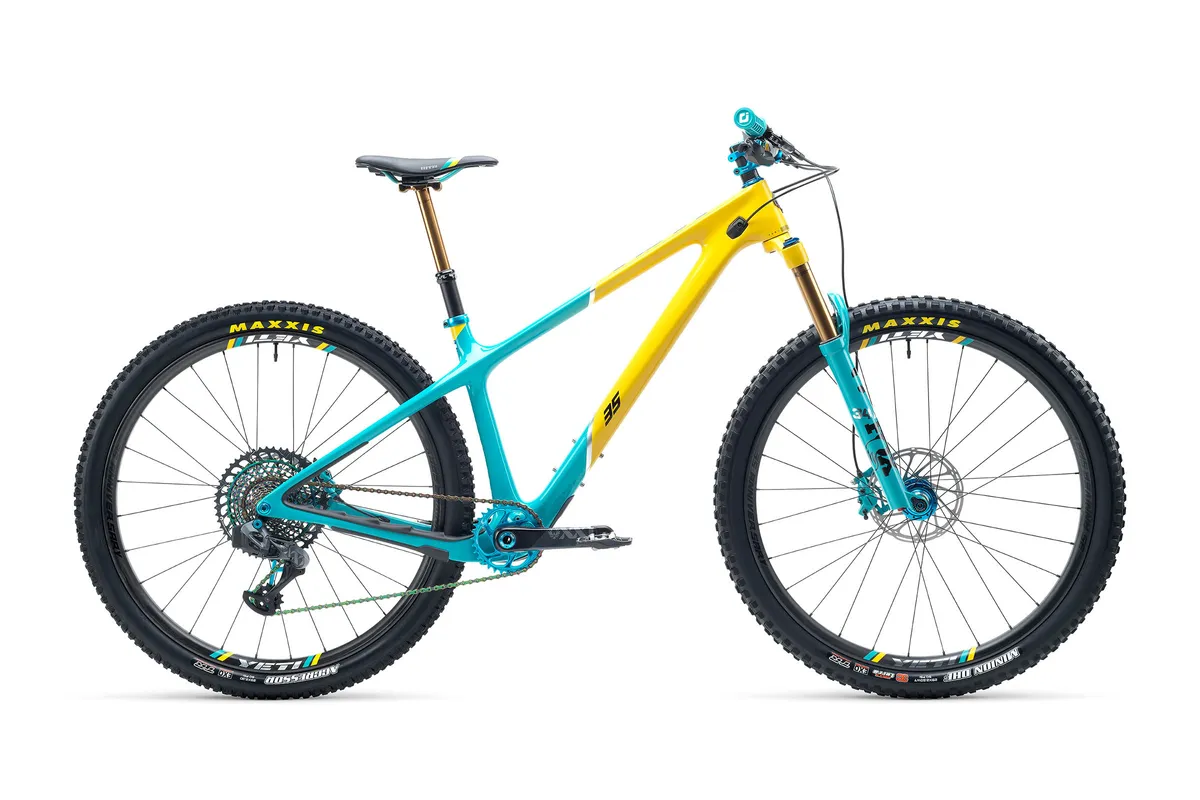
Five things you need to know about the 2021 Yeti’s ARC
- Yeti is offering five different build models (six if you include the much pricier, limited-edition anniversary model), all of which are made from the premium T-Series carbon fibre
- The new ARC is built around a 130mm travel fork and 29in wheels
- Yeti is offering the ARC in four sizes (small to extra-large)
- Its modern take on trail geometry means the ARC’s head angle is a relaxed 67 degrees and the effective seat angle is steep at 76 degrees
- The ARC is available in two colours: Raw or TURQ
2021 Yeti ARC frame details
The first ARC was launched way back in 1991, and was created as a collaboration between Yeti and Easton (using its ProTaper tubing), designed to be the ultimate race machine – something that would be hard to argue against thanks to it taking more than its fair share of podiums.
While the new ARC clearly pays homage to the original race bike, its intentions are slightly different.
Yeti claims its latest carbon fibre technology and modern trail bike geometry ensure this new bike is rooted in the present and will highlight just how versatile a hardtail can really be.
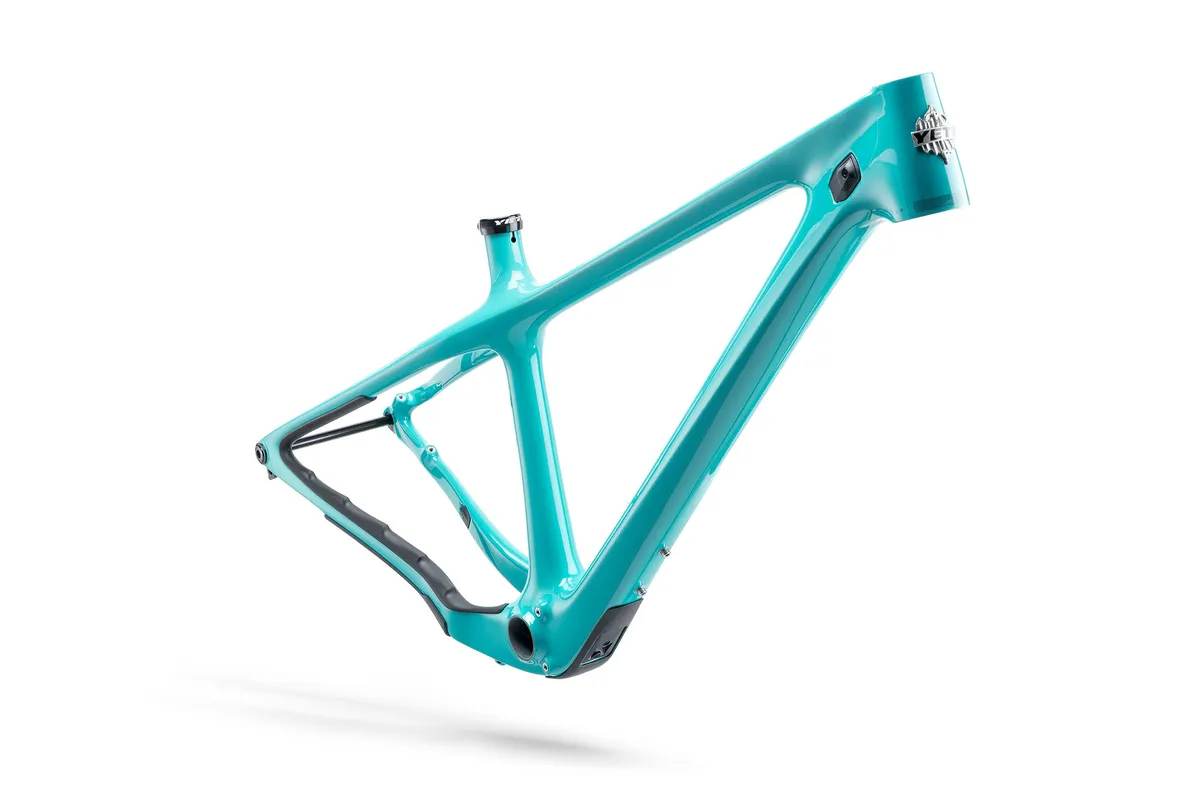
In terms of detail, the new ARC uses internally routed cables with neatly finished exit ports and a press-fit BB92 bottom bracket.
There are two sets of bottle bosses – one set on the top side of the down tube, one set on the underside of the down tube – and plenty of integrated, rubberised frame protection that runs the length of the chainstay and wraps up and around onto the underside of the driveside seatstay. There's some on the underside of the chainstay too in a bid to help silence any unwanted chain slap.
At the rear of the bike there’s a 148mm x 12mm axle and integrated derailleur hanger.
Yeti is offering the ARC exclusively in its top-tier ‘T-Series’ carbon fibre. No ARC frame will use the cheaper ‘C-Series’, lower-modulus carbon which, although just as stiff, is heavier in comparison.
2021 Yeti ARC geometry
The new ARC is designed to use 29in wheels and is built around a 130mm travel fork with a 44mm offset. It has a relaxed 67-degree head angle and a low 310mm bottom bracket height.
Other key measurements include reach figures that span from 420mm on the small frame to 490mm on the extra-large, while the 433mm chainstays should help to offer a decently balanced ride position and lively handling.
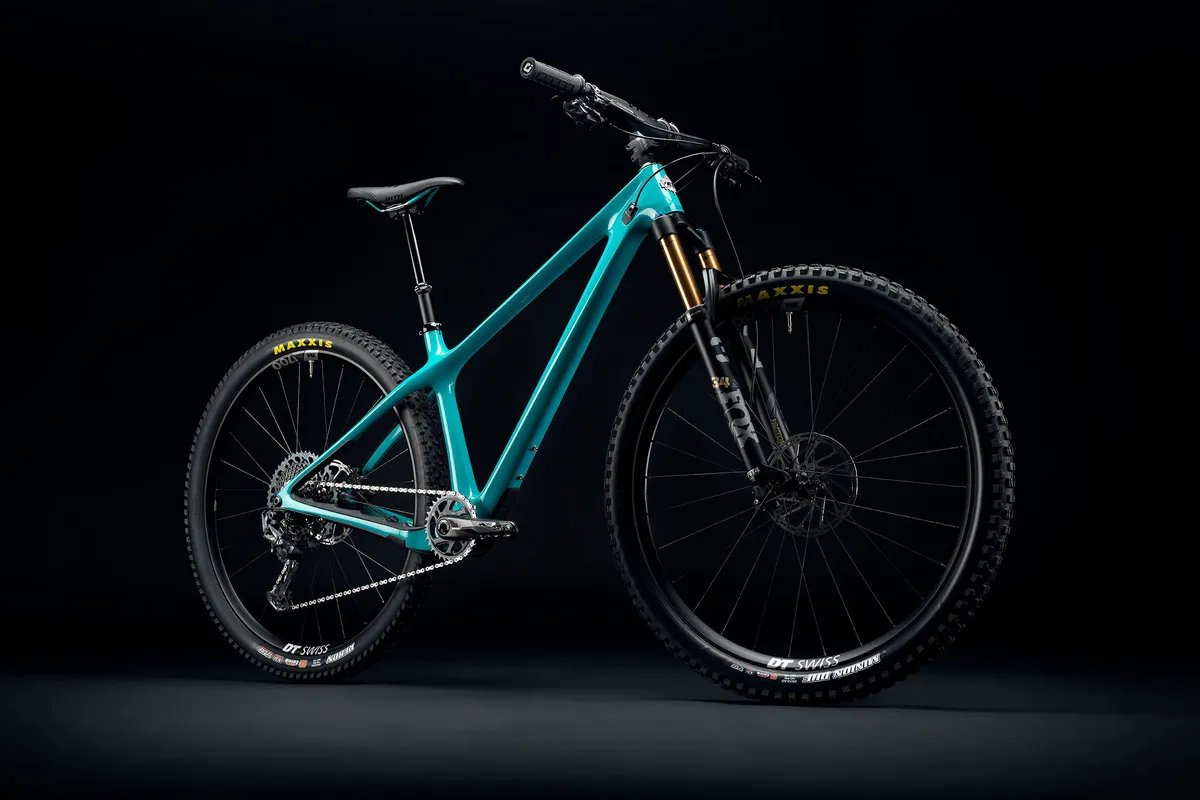
When seated, the effective top tube length is 604mm (on the medium) and is designed to work in conjunction with a 50mm stem (the same size stem is offered on all four sizes of ARC).
Then there’s the steep 76-degree effective seat tube angle, which should help to promote a really efficient climb position.
Although seat tube length is really compact at 410mm on the size medium, it jumps a hefty 40mm up to 450mm on the size large.
2021 Yeti ARC models, specifications and prices
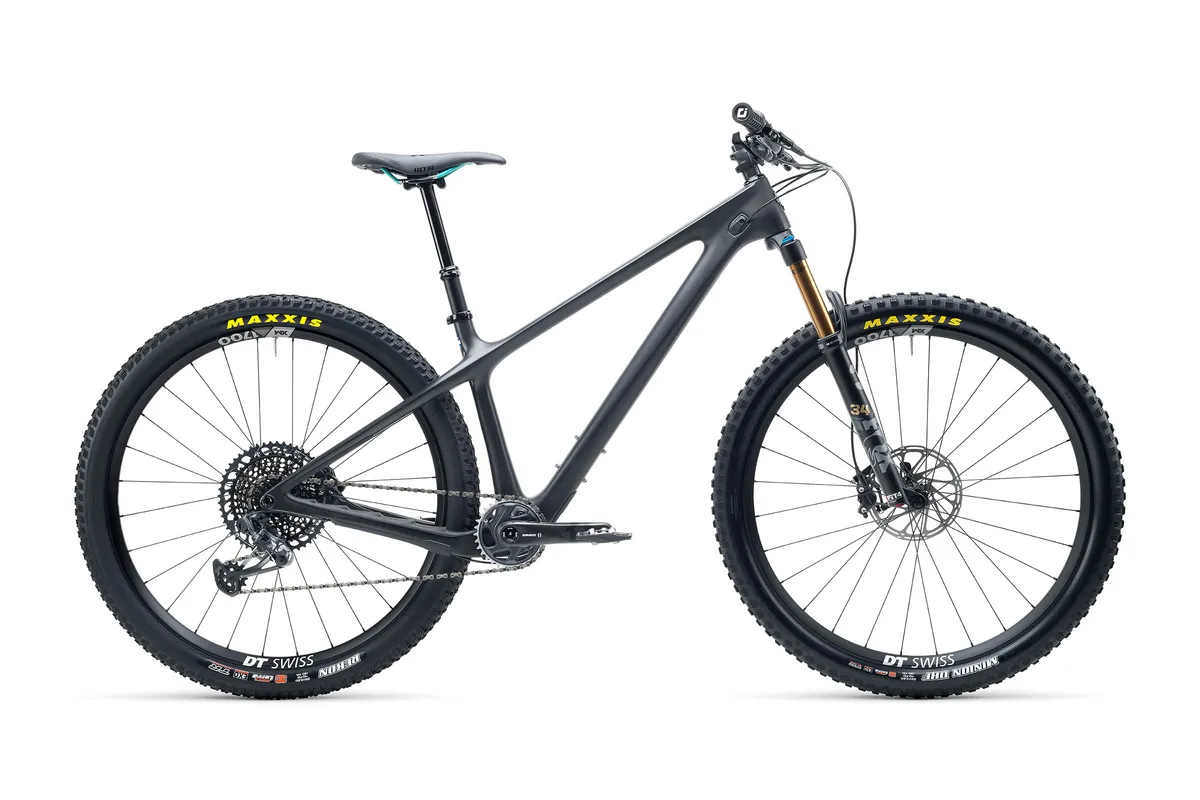
All of the ARCs on offer (plus the anniversary edition) use Fox’s 34 130mm travel fork and Transfer dropper posts.
All bikes also get Cane Creek 40 integrated headsets and the formidable Maxxis Minion DHF and Rekon tyre combo in a broad 2.6in width, which are installed on rims with a 30mm internal width.
Here’s how the whole range shapes up:
Yeti ARC C1
- Frame: C Series carbon
- Fork: Fox Performance 34 130mm
- Drivetrain: Shimano SLX 12-speed
- Brakes: Shimano Deore
- Wheels: DT Swiss M1900
- Price: £3,799 / $3,500 / €4,290
Yeti ARC C2
- Frame: C Series carbon
- Fork: Fox Performance 34 130mm
- Drivetrain: SRAM GX Eagle 12-speed
- Brakes: SRAM Level TL
- Wheels: DT Swiss M1900
- Price: £4,099 / $3,800 / €4,690
Yeti ARC T1
- Frame: TURQ Series carbon
- Fork: Fox Factory 34 FIT4 130mm
- Drivetrain: Shimano XT 12-speed
- Brakes: Shimano XT
- Wheels: DT Swiss XM1700
- Price: £4,799 / $5,000 / €5,490
Yeti ARC T2
- Frame: TURQ Series carbon
- Fork: Fox Factory 34 FIT4 130mm
- Drivetrain: SRAM X01 Eagle 12-speed
- Brakes: SRAM Level TLM
- Wheels: DT Swiss XM1700
- Price: £5,199 / $5,600 / €5,890
Yeti ARC T3 (Not available in UK/Europe)
- Frame: TURQ Series carbon
- Fork: Fox Factory 34 FIT4 130mm
- Drivetrain: SRAM XX1 Eagle 12-speed
- Brakes: SRAM Level Ultimate
- Wheels: DT Swiss XM1700
- Price: $6,700
Yeti ARC Anniversary Edition
- Frame: TURQ Series carbon
- Fork: Fox Factory 34 FIT4 130mm
- Drivetrain: SRAM XX1 Eagle AXS custom
- Brakes: SRAM Level Ultimate
- Wheels: Custom
- Price: £8,999 / $9,900
Yeti ARC frame only
- Price: $1,900
2021 Yeti ARC initial ride impressions
I’d love say that I’ve ridden the new ARC a lot already, but due to Yeti shifting the embargo to an earlier date (with very little notice), I’ve not yet had the chance and that’s why we’re running stock shots and not our own. But, in my handful of rides up until this point, the ARC has really impressed.
The steep seat-tube angle is immediately apparent as soon as you start clawing your way up the first climb. It perches you right over the bottom bracket and although the effective top tube (604mm on the medium that I rode) and short stem don’t make this the most stretched out ride position, I felt really comfortable when making my way up long ascents.
There were times I managed to clip a pedal when tackling awkward, rocky uphill turns but you soon get used to the timing required to prevent those strikes. And I’d rather have the low bottom bracket because it really does help the ARC feel planted through the turns.
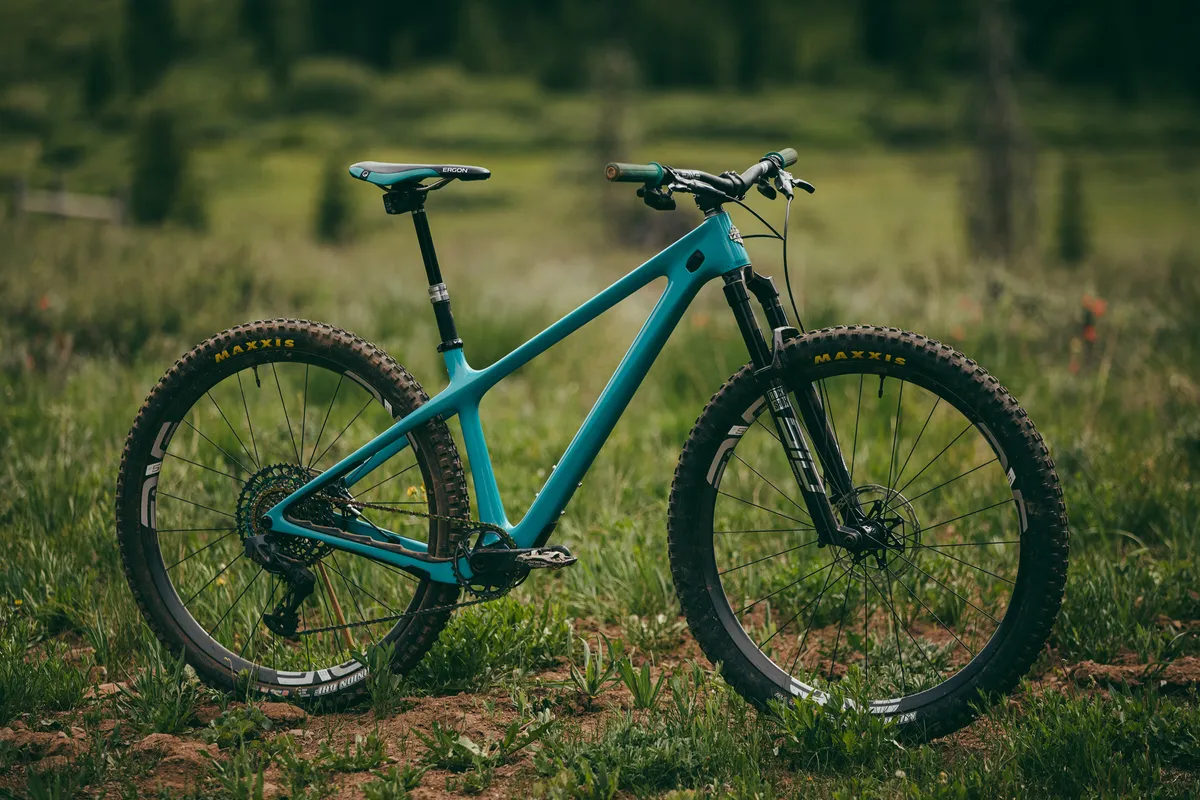
When the going gets bumpy, the ARC manages to patter over the bumps in a smooth, almost stealth-like manner. The carbon layup likely helps here, but a lot of credit has to go to the bulbous 2.6in Maxxis rubber, which does a great job of ironing out ripples in the trail.
Overall, the geometry manages to keep things feeling confident on the descents yet still ensures there’s no shortage of manoeuvrability when you do want to throw the ARC around.
The only change I’m considering at this point is moving to a grippy rear tyre because the Rekon’s shallow tread struggles in the mud and isn’t the best at braking when the going gets steep.
I'll have a full review online soon, so stay tuned.
